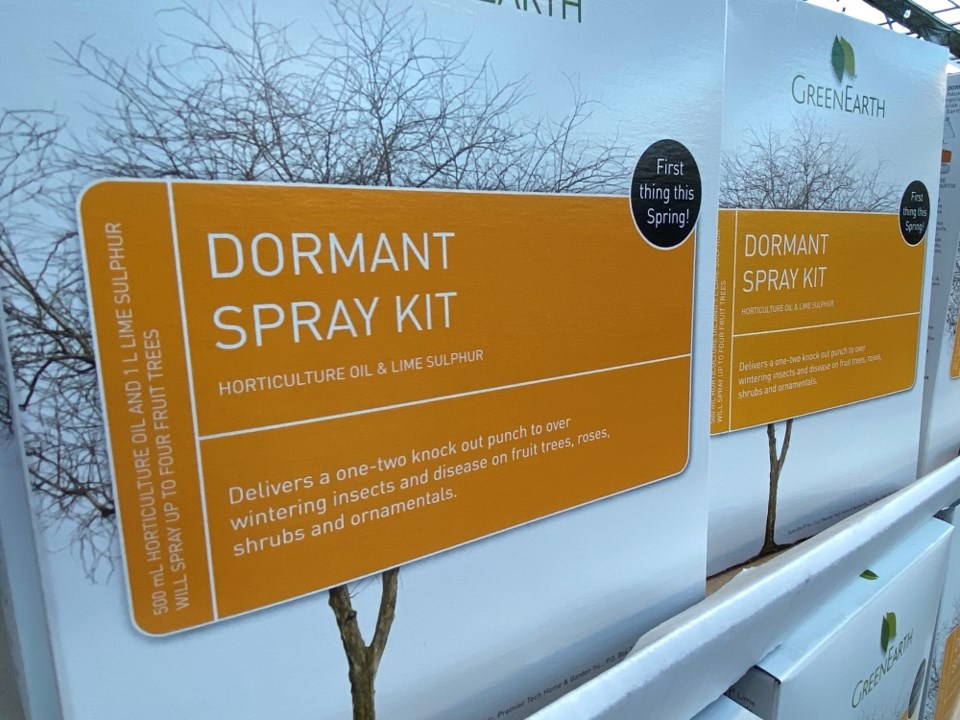While we are enjoying an incredibly mild January, it’s a great time to do some housekeeping in our gardens.
The excessive rainfall of this past autumn has caused a good deal of moss and lichen growth on many flowering shrubs and on shade and fruit trees. Insects have also been busy laying eggs in the cracks and crevices of these trees. One of the best ways of cleaning our trees is by applying dormant spray now. Dormant spray is a combination of lime sulphur (a mild fungicide) and organic horticultural oil.
This mixture is excellent to clear up both moss and lichen on the branches and trunks of trees and to control the eggs of harmful insects in tree openings.
To be most effective, dormant spray should be applied when the temperature is above freezing, and the weather is dry. Applying it with a pressure sprayer allows the mixture to better adhere to the branches. Three applications, about two to three weeks apart, is ideal. Try to get it done before new growth buds appear.
Mix the lime sulphur and the horticultural oil with warm water and spray this solution until "run off."
This means applying a fine mist on all the branches and on the trunk until it begins to drip. It’s amazing how well this mixture will clean up trees and shrubs, making them healthier and better able to perform their best this coming spring and summer.
Not all trees and shrubs, however, do well with an application of lime sulphur and horticultural oil. There are three families of trees to avoid: nut trees, maples and viburnums. It’s also important to note that, because of our rainy spring weather, peach and nectarine trees are often negatively affected by peach leaf curl fungus and are best treated with copper spray to help control this fungus. Better yet, peach and nectarine trees should be grown against a south- or west-facing wall of your home or garage in a flat, espaliered form in order to keep the foliage dry. By growing them in this way, you will have very few fungus issues, and you will be able to enjoy considerable amounts of fresh peaches and nectarines.
As we experience more extreme weather conditions, our trees and shrubs will need better care.
Applying organic matter around the drip lines of all our trees and shrubs will not only provide better moisture retention but also more nutrients. If you have good organic matter from your own compost, that’s great, but professional blends, like Sea Soil, made from kelp and fish waste, will make a significant difference.
Dolomite lime, applied around our garden shrubs — avoiding acid-loving plants, like rhododendrons, azaleas and camellias — will help keep the pH level of the soil up, as well as adding calcium and magnesium.
Lawns would also benefit from an application of lime now, as well as your garden area. But remember: no lime in your potato patch.
This bit of tidy up and tree care at this time of the year will pay huge dividends, particularly as we go through our warm, dry summer.



